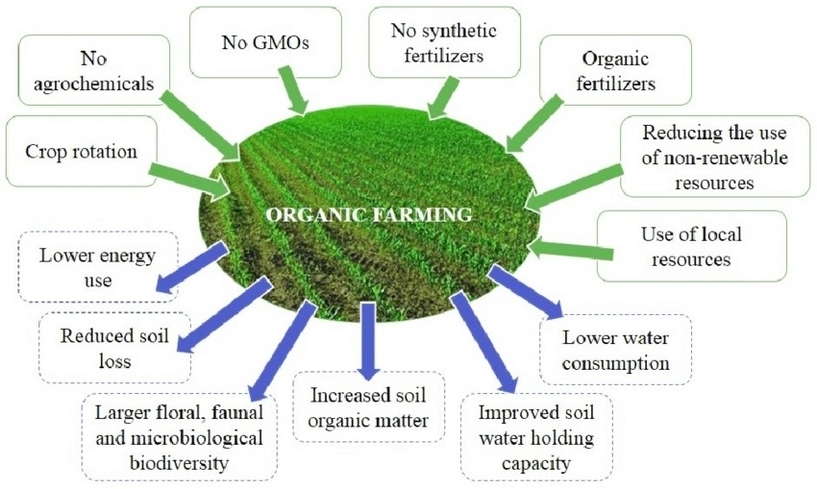
Organic farming is a method of agriculture that emphasizes the use of natural inputs and techniques to produce crops and livestock. The principles of organic farming are based on the idea of working with nature, rather than against it, to create a sustainable and healthy food system. Organic farming is based on four principles: health, ecology, fairness, and care.
The principle of health in organic farming refers to the idea that healthy soil, plants, animals, and people are all interconnected. Organic farmers aim to maintain the health of the soil by using natural fertilizers and avoiding the use of synthetic pesticides and fertilizers. This helps to create a healthy environment for plants to grow and animals to thrive. Organic farming also aims to produce healthy food that is free from harmful chemicals and additives.
The principle of ecology in organic farming refers to the idea that farming practices should be designed to work in harmony with the natural environment. Organic farmers aim to minimize the impact of their farming practices on the environment by using techniques such as crop rotation, intercropping, and natural pest control. These practices help to maintain the biodiversity of the ecosystem and reduce the risk of soil erosion and water pollution.
The principle of fairness in organic farming refers to the idea that farmers should be treated fairly and that consumers should have access to healthy and affordable food. Organic farming aims to create a fair and equitable food system by supporting small-scale farmers and promoting local food systems. This helps to ensure that farmers receive a fair price for their products and that consumers have access to healthy and affordable food.
The principle of care in organic farming refers to the idea that farmers should take care of the land and the environment for future generations. Organic farmers aim to create a sustainable food system that can be passed down to future generations by using techniques that promote soil health and biodiversity. This helps to ensure that the land remains productive and healthy for years to come.
Organic farming has several positive effects on the environment and human health. Organic farming practices help to reduce the amount of synthetic pesticides and fertilizers that are used in agriculture, which can have negative effects on the environment and human health. Organic farming also helps to reduce the amount of greenhouse gases that are produced by agriculture, which can help to mitigate climate change. Additionally, organic farming
